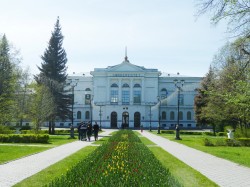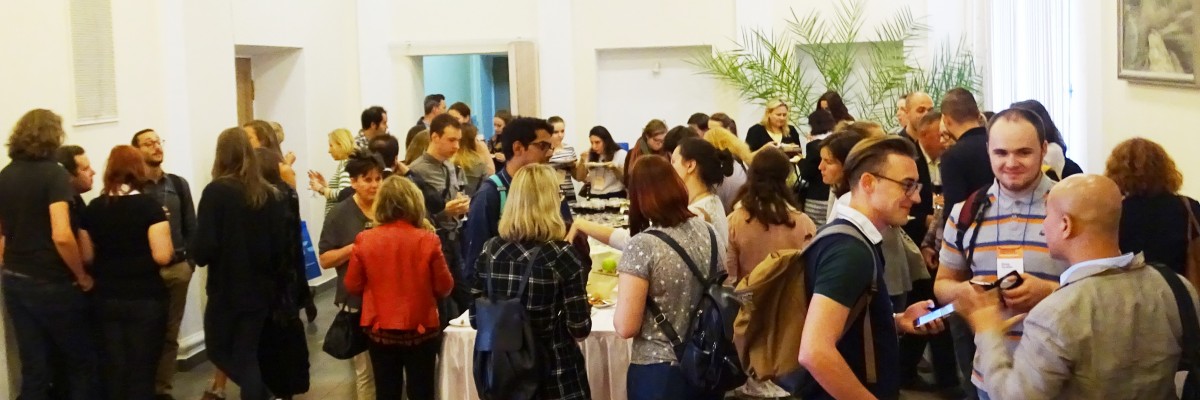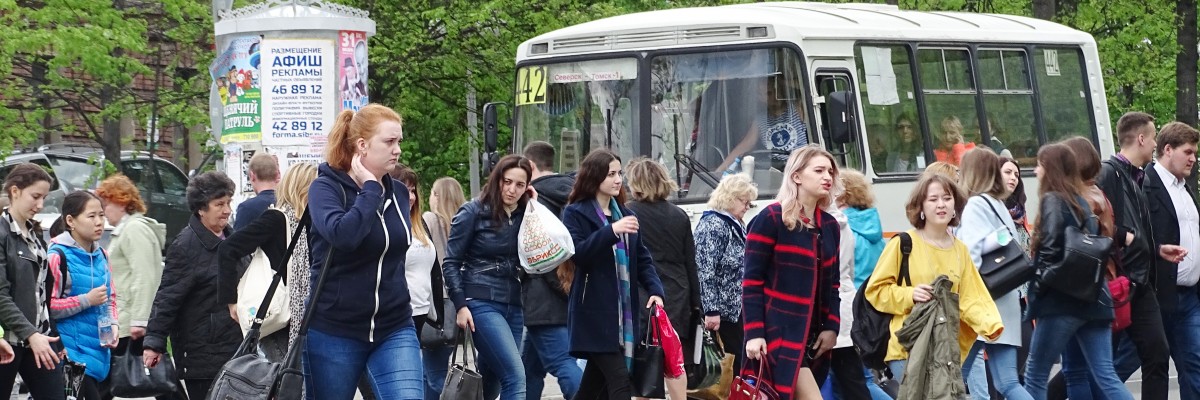
Keynote speech “Statistics need Stories” in Russia
29 May 2017
On May 22nd 2017, Martine Bouman delivered the opening keynote speech at the conference “Social Science & Health Innovations: Making Health Public” in Tomsk, West Siberia. The conference was organized by the Tomsk State University in collaboration with (amongst others) Maastricht University, Faculty of Health, Medicine and Life Sciences (CAPHRI).
During this conference, social and (bio) medical scientists discussed various health innovations for the public. Martines’ keynote speech was titled “Statistics need stories: the urgency of media approaches in public health“. She pleaded for increasing collaborations with media professionals and using popular media and storytelling formats to reach vulnerable groups in society.
This is the abstract of Martine’s keynote:
The media’s role in setting the health agenda has grown substantially over the past few decades. Health issues are not considered relevant unless they are made visible. Information about health issues has to compete with thousands of other communication messages. If the attention of our target audience is to be caught and held, especially when that audience is not yet interested in health issues, it is no longer sufficient to rely solely on the rationality of our health message. Other, more emotionally appealing and popular communication methods also have to be brought into play. Using storytelling can make health issues more accessible. Integrating health issues in popular media formats (in theater, film, music, television, new media, or experience parks) is known as the entertainment-education (EE) strategy. The idea of ‘entertainment with an added value’ poses a big challenge for science, policy and practice. With a rapidly changing media landscape the distinction between media creators and audiences is becoming increasingly diffuse. Social media (e.g., Facebook, WhatsApp, Twitter, Skype, YouTube, MySpace, Pinterest, Instagram, blogs) have become an integral part of our daily lives. This creates an unique opportunity to make public health more participatory and more 'public. This also contributes to the emergence of new classes of online professional creatives, serious game designers, social influences and community owners. Which roles do these media innovations play and how can they contribute into 'making health public'. How can media - through encouraging storytelling, and entertainment - contribute to empowering publics? Martine Bouman will share her experience and research on the entertainment education strategy and on creating a crossover between public health and the creative media industry. She will illustrate this with examples and film fragments.
Read more about the conference.
Back to news overview
During this conference, social and (bio) medical scientists discussed various health innovations for the public. Martines’ keynote speech was titled “Statistics need stories: the urgency of media approaches in public health“. She pleaded for increasing collaborations with media professionals and using popular media and storytelling formats to reach vulnerable groups in society.
This is the abstract of Martine’s keynote:
The media’s role in setting the health agenda has grown substantially over the past few decades. Health issues are not considered relevant unless they are made visible. Information about health issues has to compete with thousands of other communication messages. If the attention of our target audience is to be caught and held, especially when that audience is not yet interested in health issues, it is no longer sufficient to rely solely on the rationality of our health message. Other, more emotionally appealing and popular communication methods also have to be brought into play. Using storytelling can make health issues more accessible. Integrating health issues in popular media formats (in theater, film, music, television, new media, or experience parks) is known as the entertainment-education (EE) strategy. The idea of ‘entertainment with an added value’ poses a big challenge for science, policy and practice. With a rapidly changing media landscape the distinction between media creators and audiences is becoming increasingly diffuse. Social media (e.g., Facebook, WhatsApp, Twitter, Skype, YouTube, MySpace, Pinterest, Instagram, blogs) have become an integral part of our daily lives. This creates an unique opportunity to make public health more participatory and more 'public. This also contributes to the emergence of new classes of online professional creatives, serious game designers, social influences and community owners. Which roles do these media innovations play and how can they contribute into 'making health public'. How can media - through encouraging storytelling, and entertainment - contribute to empowering publics? Martine Bouman will share her experience and research on the entertainment education strategy and on creating a crossover between public health and the creative media industry. She will illustrate this with examples and film fragments.
Read more about the conference.

